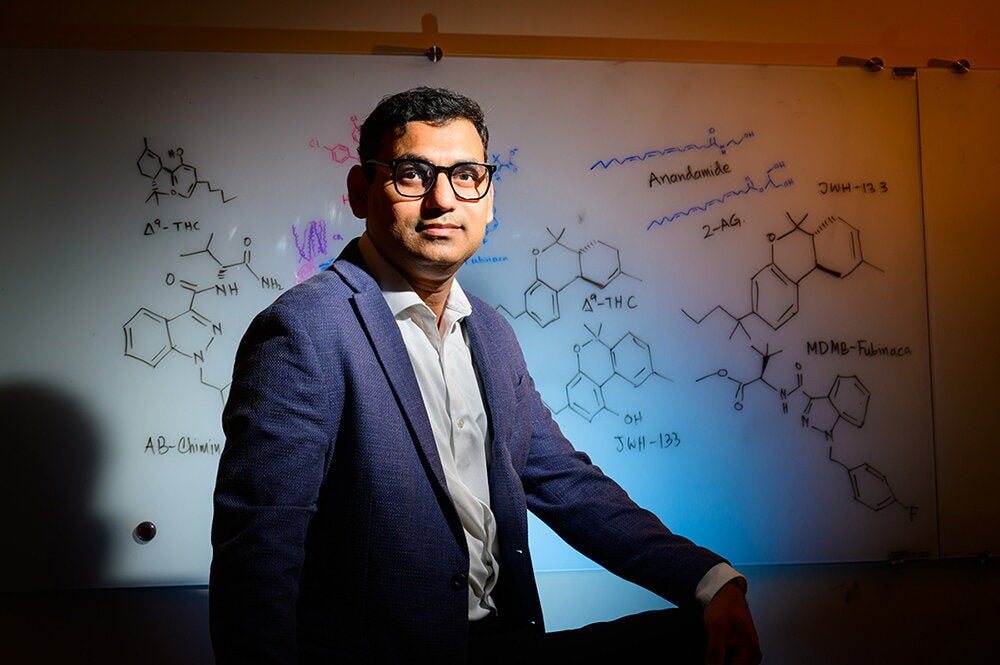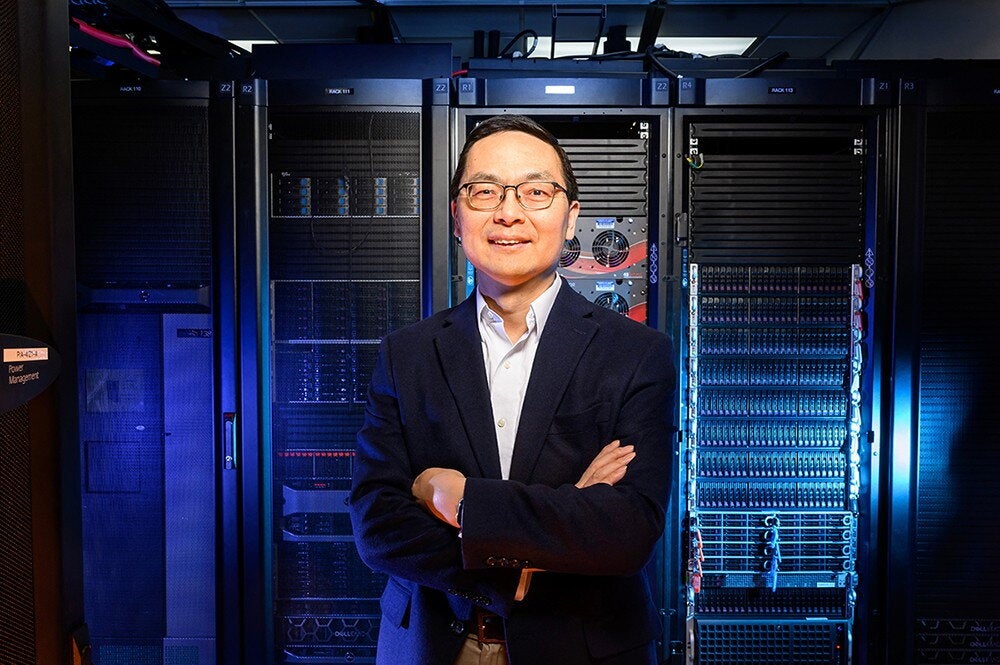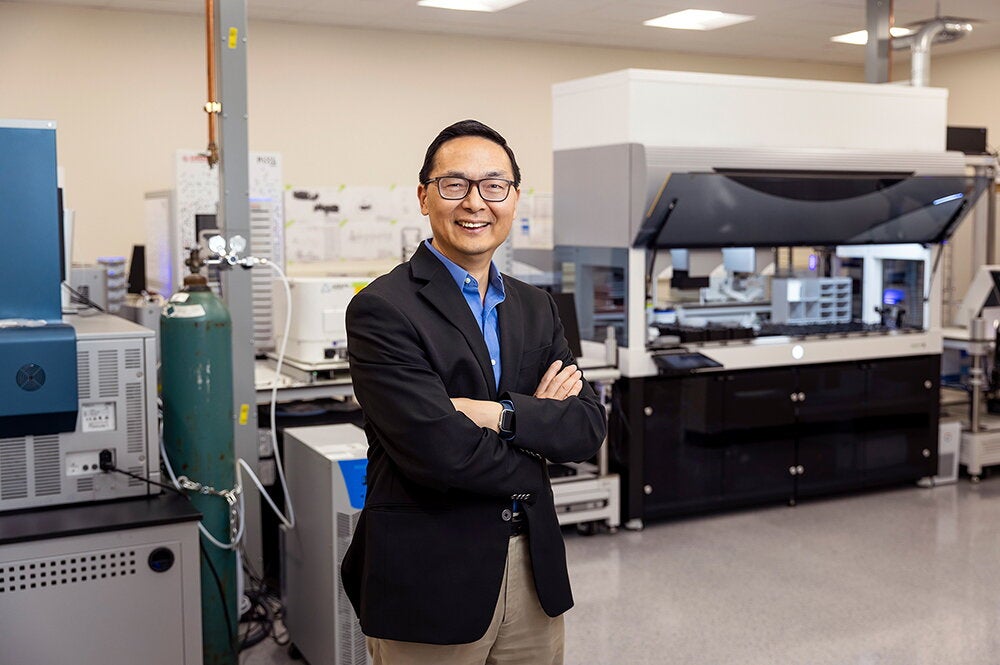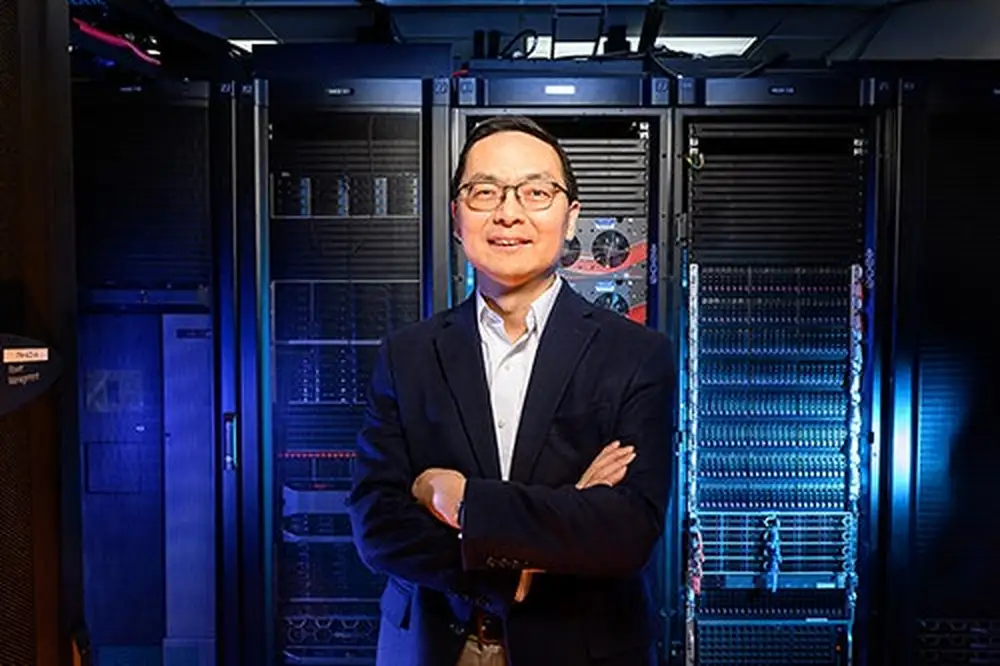
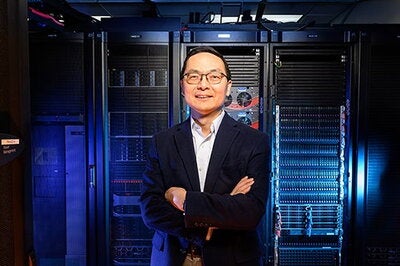
With a new five-year, $15 million award, the U.S. National Science Foundation has renewed its support of the Molecule Maker Lab Institute, a research collaboration focused on developing artificial intelligence tools for quick, accessible discovery and synthesis of molecules for applications in medicine, energy, industry and more.
Headquartered at the University of Illinois Urbana-Champaign, with partners at Pennsylvania State University and the Georgia Institute of Technology, the NSF MMLI was first established as a National Artificial Intelligence Research Institute in 2020. Huimin Zhao, a professor of chemical and biomolecular engineering at the U of I, directs the NSF MMLI.
“Functional molecules such as drugs, chemicals, enzymes and materials play a critical role in addressing many grand challenges facing society today. However, the process of discovering and manufacturing such molecules has remained slow, expensive, and highly specialist-dependent. We have developed AI tools and generalizable, automated molecule-making systems that can overcome this challenge and enable the rapid discovery and synthesis of more functional molecules that benefit society,” said Zhao, who also is affiliated with the Carl R. Woese Institute for Genomic Biology at the U. of I.
In its first five years, the NSF MMLI has made advances in developing AI models, such as those used to predict the function of molecules based on their structures and those that suggest how to improve a molecule’s performance. The Institute also integrates those models with automated molecule-building systems and user-friendly interfaces to make the AI-driven solutions accessible even to researchers who are not chemists or biochemists. The work performed through the NSF MMLI has resulted in 166 journal and conference papers, 11 patent disclosures — including six that have been licensed — and two start-up companies.
“Key accomplishments include the creation of AlphaSynthesis, an AI-powered platform that helps researchers plan and execute chemical synthesis, and the advancement of closed-loop systems that automate molecule development using real-time data and AI feedback. These tools have not only improved research efficiency but also led to new chemical discoveries,” NSF said in its award description.
Over the next five years, the NSF MMLI plans to continue developing foundational AI agents for discovery and synthesis of functional molecules, as well as advancing AI-enabled discovery and development of catalysts, drugs and materials. In addition, the NSF MMLI will refine and scale up the innovative education and workforce development tools and programs that were developed in its first five years, such as the Digital Molecule Maker and Lab 217 Escape Room.
“We are most excited about the next-generation AI tools that we will develop in this next chapter for molecular discovery and synthesis,” Zhao said. “We plan to develop a large language model for modular chemistry, AI agents with critical thinking capabilities and generative AI models for catalyst discovery. These AI tools should greatly accelerate the process of discovering and synthesizing functional molecules that benefit society.”
Visit NSF News to read more about the 2025 National Artificial Intelligence Research Institutes awards.
